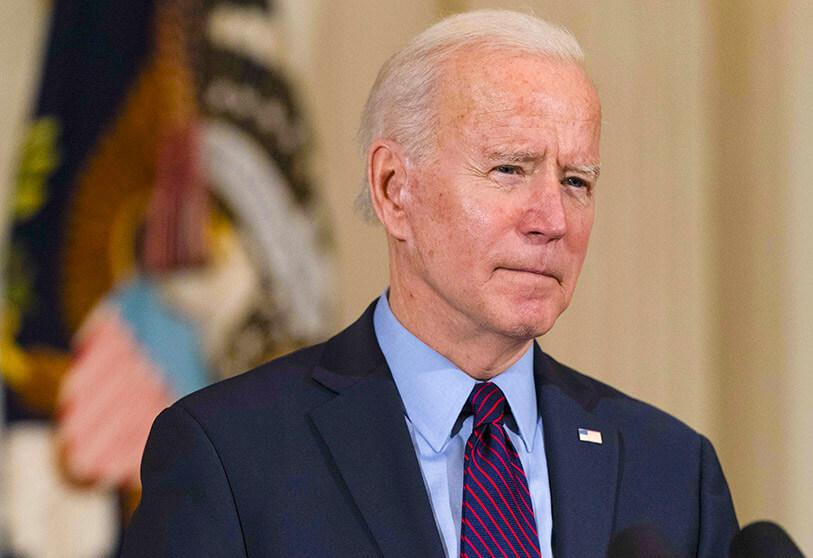Next September, when the last C-130 cargo aircraft and Chinook transport helicopters take off from the infamous Bagram Air Force Base in Afghanistan that has doubled as a CIA torture center for suspected jihadists, they will not only be leaving behind the site of a military defeat. Their departure will also mark the dismal end of a strategy of direct military engagement to drastically reshape the Middle East that resulted instead in upending the global strategic balance.
America’s 20-year-long war in the Middle East contributed decisively not only to degrading U.S. imperial power but also to the domestic polarization savaging the American political process at present and to the emergence of China as the new center of global capital accumulation. Ending the Afghanistan commitment, liberals and progressives hope, will provide the conditions for a fundamental reset of US foreign policy
But even now, many are skeptical that the United States has really learned its lesson and that Joe Biden will not find another excuse to maintain a military contingent in Afghanistan.
In a United States that has gone through the trauma of COVID-19, followed by the January 6 insurrection and a pandemic of almost weekly mass shootings, Osama bin Laden, George W. Bush, 9/11, and the War on Terror might seem to be historical footnotes that pale before the country’s present troubles. But these now seemingly distant personalities and events had a decisive role in shaping the present.
Osama’s vision, Bush’s opportunity
As I wrote in the aftermath of 9/11, Osama bin Laden operated with something like Che Guevara’s “foco theory.” Guevara believed that direct engagement of the enemy was necessary to show peasants that guerrillas could defeat the military and encourage them to join the revolution. Bin Laden, operating on a global stage, saw the September 11 events as an act that would expose the vulnerability of the Great Satan and inspire Muslims to join his jihad against it.
It did not quite work out that way. Instead of being inspired, most Muslims were horrified and distanced themselves from the terrible deed. Still bin Laden lucked out, thanks to George W. Bush and the neoconservatives that had come to power with him in Washington in 2001. For them, Osama’s attack was a god-given opportunity to teach both America’s enemies and friends that the empire was omnipotent. Ostensibly waged to go after the “roots of terror,” the invasions of Afghanistan and Iraq were in fact what the Romans called “exemplary wars,” and their aim was to reshape the global strategic environment to fit Washington’s so-called “unipolar” status following the demise of the Soviet Union.
Disappointed with his father’s reluctance to finish off Saddam Hussein during the 1990-91 Gulf War, George W. Bush initiated these invasions as the first steps in a demarche that would eliminate the so-called rogue states, compel greater loyalty from dependent states or supplant them with stronger allies, and put strategic competitors like China on notice that they should not even think of vying with the United States.
Disregarding the lessons of Vietnam and the British and Soviet debacles in Afghanistan, the Bush administration drove the United States into two unwinnable wars against highly motivated insurgents in the Middle East as bin Laden watched with satisfaction, living unperturbed under the protection of an American ally, the Pakistani military, in the peaceful garrison town of Abbottabad in Pakistan. It was not exactly the scenario he had envisaged, but he was not about to quibble if the Bush administration, owing to its drive for unipolar hegemony, placed the United States on the road to overextension, which was, after all, his strategic aim.
Prolonged occupation demanded boots on the ground, and as Deputy Secretary of State Richard Armitage saw it, “The Army, in particular, [is] stretched too thin…fighting three wars—Afghanistan still, Iraq, and the global war on terrorism.” At the height of the Iraq War, defense analyst James Fallows wrote, it was “only a slight exaggeration to say that today the entire U.S. military is either in Iraq, returning from Iraq, or getting ready to go.” Most of the Army’s maneuverable brigades were overseas, and those left in the United States were too few to maintain the contingency reserve or the training base necessary. Even the famed Special Forces were degraded, with their actual numbers in the field coming to hundreds at the most. Lack of human resources led the high command to call on the Reserves and the National Guard. As might be expected, morale plummeted, especially as tours of duty were extended and casualties mounted in lands to which these part-time soldiers had never expected to be assigned.
And as the prospect of prevailing in the battlefield became more and more distant, public support for the Iraq and Afghanistan expeditions, which was very limited right from the start, went up in smoke.













